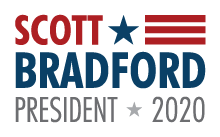Free trade is good. Protectionism is bad.
The argument is made by some prominent politicians on both the right and the left that free trade hurts American workers. Let’s use cars as an example; if Hyundai is able to produce a sedan with cheap overseas labor, they could sell that car at a lower price than an equivalent car built in America. So, they say, we should impose tariffs on imported cars to level the playing field and make sure that the workers at General Motors (GM) aren’t at an unfair disadvantage.
The problem is that the American consumer doesn’t benefit from this arrangement. I might really like that Hyundai import. And I might really hate the GM alternative. All this hypothetical trade policy would have accomplished was making me (and millions more like me) pay more to get the car I want. Not only did GM not actually benefit, but now millions of consumers have less spending money. Maybe that means I have to eat out less at my local restaurants…so now this misguided trade policy is also hurting local businesses that have no direct connection to car tariff policy.
This hypothetical scenario is, of course, an oversimplification. In fact, GM makes a lot of its cars outside of the U.S…and Hyundai makes a lot of theirs in the U.S. But it makes the point. High tariff policies hurt American consumers in a much broader and more harmful way than they help the American workers they’re intended to help, and they have follow-on harms that hurt American workers in other, unrelated fields.
Note that all of this applies even if Korea had super-high tariffs on American cars. Yes, those hypothetical Korean tariffs are bad for Koreans, and they are harmful to the U.S. auto industry, but none of that changes the basic fact that high reciprocal tariffs on Korean cars (or on other Korean goods) also hurts Americans.
The only good argument for high tariffs and trade wars — like those initiated by President Trump — is that they can apply pressure to other countries to lower their tariffs. The goal is to temporarily enact bad tariffs on foreign goods in hopes that those foreign countries reduce their tariffs and, in return, we’ll lower ours. When it works, it works. When it doesn’t, everybody suffers from it.
I propose a better, more uniform, more fair approach.
A Reciprocity Plan
Ideally, tariffs would be low across the board. We would impose only low tariffs on foreign goods coming into the U.S., and others would impose only low tariffs on U.S. goods coming into their countries. Even if other countries don’t cooperate and choose to impose unfair tariffs on our goods, one-off retaliation with tariffs of our own is typically ineffective and, as described above, still harms U.S. consumers.
This back-and-forth piecemeal approach, with occasional flare-ups of major trade wars, doesn’t work and doesn’t effectively encourage other countries to adopt free and fair trade policies. So let’s make our tariff policy very plain and very simple: the U.S. tariff on all goods from a particular country will be exactly equal to that country’s single highest tariff on any good from the U.S.
So if, for example, China wants to impose a 20% tariff on U.S. electronics, then that’s fine. But in return we will impose a 20% tariff on every single product from China. And if China does not like that, they are welcome to reduce that electronics tariff accordingly, and ours will drop right along with it…automatically and without any dumb political posturing or bickering or negotiation. Trade wars won’t exist, and each country will have the opportunity to choose for itself whether to have free trade with the U.S. (and all the mutual benefits therefrom) or not.
This approach would ensure that our tariff policies are always fair while simultaneously encouraging other countries to lower their tariffs on U.S. goods, which is good for everybody. But small groups of american workers will no longer get unfair advantages at the expense of large groups of American consumers.
